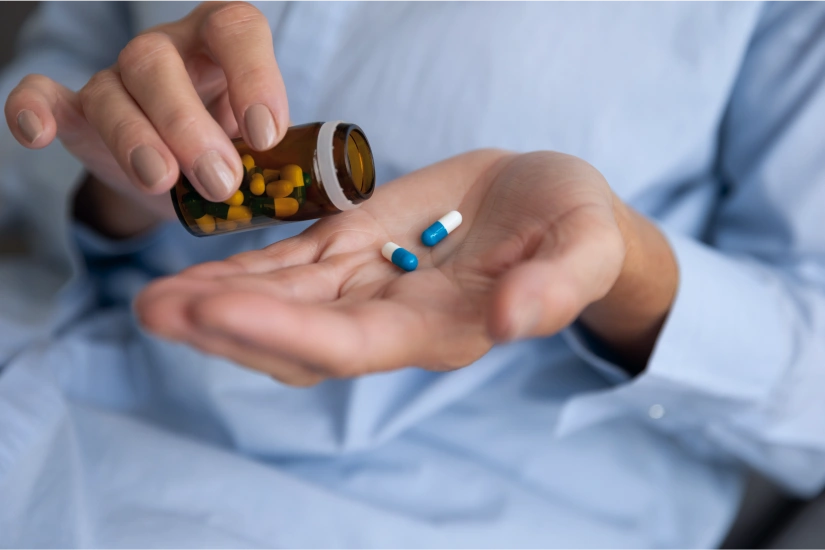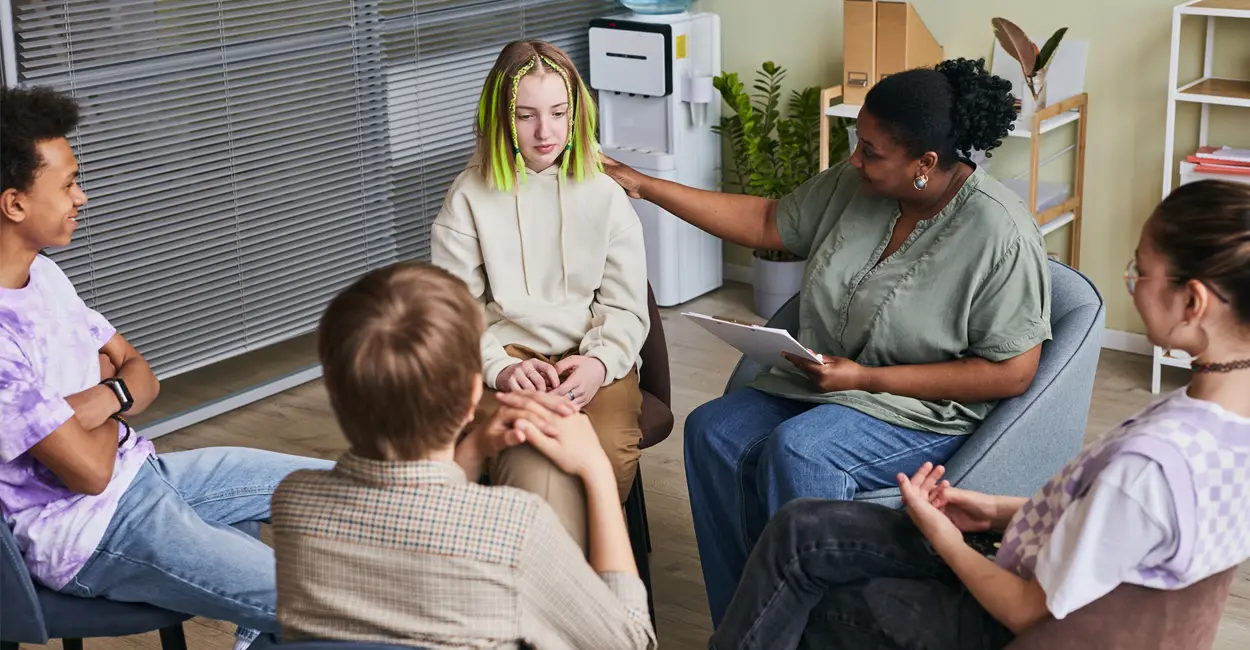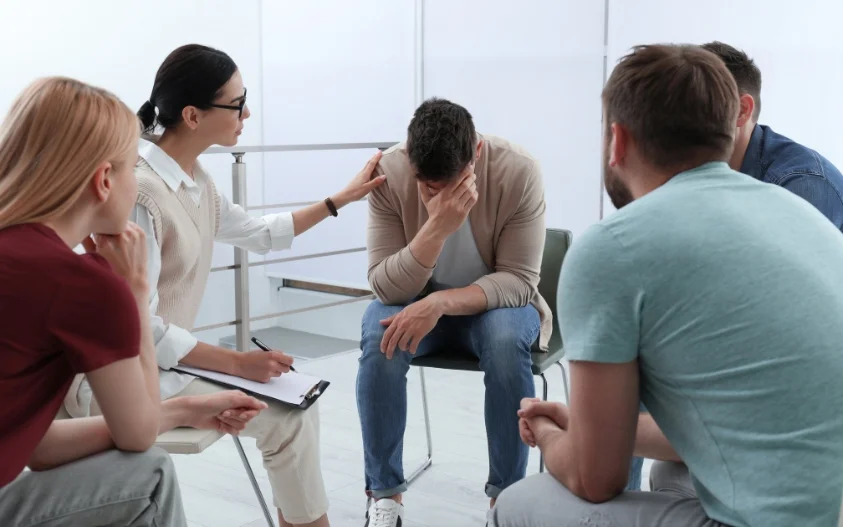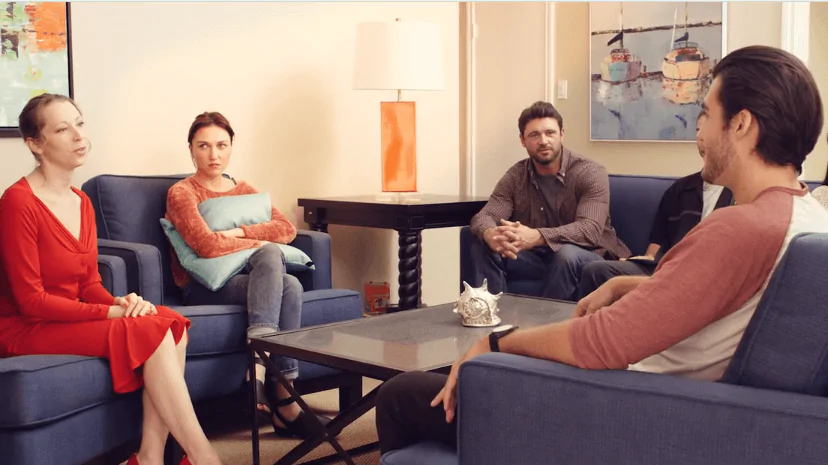24/7 Helpline:
(866) 899-221924/7 Helpline:
(866) 899-2219
Learn more about PTSD Rehab centers in Oskaloosa

Other Insurance Options

American Behavioral

MHNNet Behavioral Health

Highmark

UnitedHealth Group

ComPsych

UMR

Sutter

Molina Healthcare

Access to Recovery (ATR) Voucher

Kaiser Permanente

Holman Group

MVP Healthcare

AllWell

Amerigroup

Magellan

Sliding scale payment assistance

WellCare Health Plans

Optum

State Farm

Optima

Mahaska Behavioral Health Services
Mahaska Behavioral Health Services is a public rehab located in Oskaloosa, Iowa. Mahaska Behavioral ...

Sieda Community Action
Sieda Community Action provides services designed to strengthen families, promote child development,...

Behavioral Health Services
Behavioral Health Services is a public rehab located in Oskaloosa, Iowa. Behavioral Health Services ...

The Guidance Center
The Guidance Center is located in Oskaloosa, Kansas. They offer mental health treatment services to ...

Crossroads of Pella – Edge of Recovery
Crossroads of Pella – Edge of Recovery is a private rehab located in Oskaloosa, Iowa. Crossroads of ...



Grace Counseling
Grace Counseling is a private rehab located in Cedar, Minnesota. Grace Counseling specializes in the...
Mental Health America of Dutchess County
Mental Health America of Dutchess County is a private rehab located in Beacon, New York. Mental Heal...
Astor Services for Children and Families – Beacon Counseling Center
Astor Services for Children and Families - Beacon Counseling Center is located in Beacon, New York. ...

New Dimension Group
New Dimension Group offers outpatient services for individuals with a mental health diagnosis. The p...


























Saint Francis Hospital – Inpatient Rehab
Saint Francis Hospital – Inpatient Rehab is a private rehab located in Beacon, New York. Saint Franc...

VMC Consulting Services
VMC Consulting Services is a private rehab located in Beacon, New York. VMC Consulting Services spec...

Lexington Center for Recovery
Lexington Center for Recovery offers a program of recovery which respects the dignity and individual...

















































































